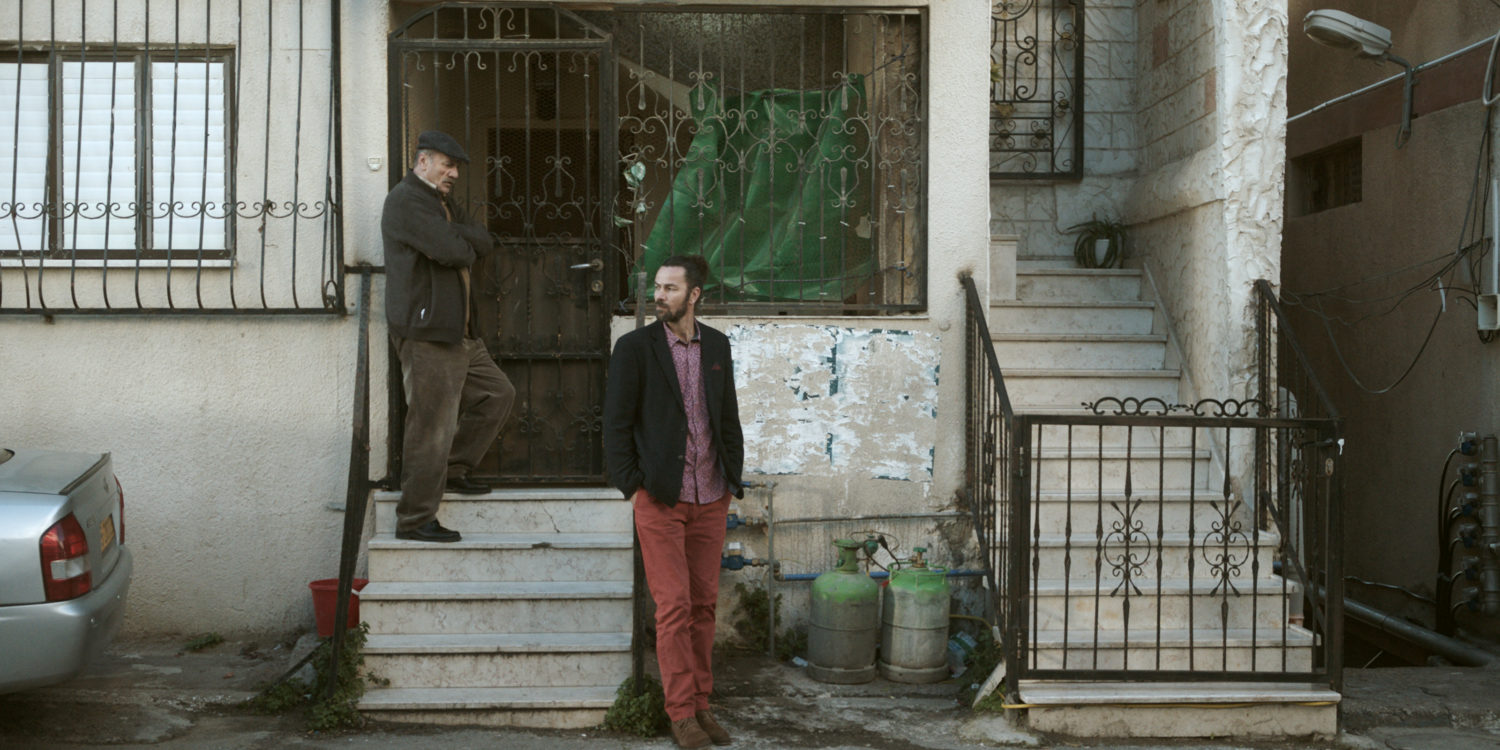Dr Khalid Ali explains why ‘Wajib’ is an authentic Palestinian story with universal themes
In her third feature film, ‘Wajib’, award-wining director Annemarie Jacir explores the opposing viewpoints of Palestinian emigrants and those who remained at home through a bittersweet tale of a son and his father. Shadi (Saleh Bakri) is Palestinian architect living in Italy. During the Christmas holidays, Shadi is visiting Palestine to help his ailing father Abu Shadi (Mohammad Bakri) with the arrangements for his sister’s wedding. As tradition dictates, father and son must personally deliver the wedding invitations to family and friends. It is a duty (wajib) that they must fulfil. Travelling in an old Volvo car through the streets of Nazareth, the couple can’t stop arguing. Abu Shadi is utterly disappointed with his son’s Western way of living, his pink shirt and red trousers, and the fact that he lives with a girlfriend out of wedlock. Similarly Shadi constantly nags his father to stop smoking, ridicules his choice of the wedding singer, and above all blames him for never aspiring to be more than a simple school teacher. The enforced proximity in the road journey between the grumpy father and frustrated son provides a rich setting for exploring the intergenerational conflict where both partners are entrenched with unwavering values and beliefs. Shadi is disappointed with almost everything around him; overflowing garbage bins, short-tempered drivers, and nosy relatives. Above all he cannot forgive his father for living in harmony with Israelis. Abu Shadi has compelling reasons for his actions; he has to compromise and befriend Israeli officials to fulfil his dream of becoming a headmaster in his school one day. In the generation-game, son and father argue non-stop; each one is trying to prove that his choices were right. Each of them is bound by a set of moral obligations (a collection of wajibs) towards each other, their own selves and the community around them.
In its exploration of filial piety, the film will resonate with Arab viewers where local culture dictates that sons must abide by a ‘code of obedience’ including ‘arranged marriage’. On another level, the turbulent father-son relationship will be familiar to anyone who has ever argued with his/ her father about choices in life including partners!
Although influential in driving the film narrative, the women are mostly players behind the scene; Shadi’s sister and cousin appear briefly, while his mother and girlfriend are never seen. The focus of the story is clearly father and son. Credit goes to Jacir’s script for providing Saleh and Mohammad Bakri (real life son and father) with richly detailed characters. Both actors relish their roles; Mohammad Bakri uses the wrinkles etched on his face to add texture and gravitas to his performance, while Saleh delivers a nuanced performance in restraining his torment until a master scene where father and son explode. Both actors shine in their own way, an achievement that won them a joint best-actor award in Dubai International Film Festival in 2017.
The social background of everyday life in the Christian neighbourhood of Nazareth is closely observed by setting the story around the Christmas celebrations. The film plays out as a tribute to resilient Palestinians surviving in the midst of an oppressive Israeli rule. The ‘survival instinct and ability to adapt’ in Palestinians are recurring themes in Jacir’s films ‘When I saw you’ (2012), and ‘Salt of this sea (2008). However in ‘Wajib’ there is a noticeable lighter tone and permeating humour that keeps the viewer entertained while reflecting on contemporary harsh life in Palestine.
‘Wajib’ is a thought-provoking as well as an appealing comedy-drama that cleverly combines a very personal Palestinian story with universal overtones. As viewers we can all relate to the generation clash, the difficult choices people have to make to fulfil their hopes and dreams, as well as their sacrifices; all elements that inevitably determine our identity as human beings.
Wajib is screening at the Institut Francais on Saturday 15 September @ 8:30pm. Buy tickets here, and check out the rest of the SAFAR programme here.

